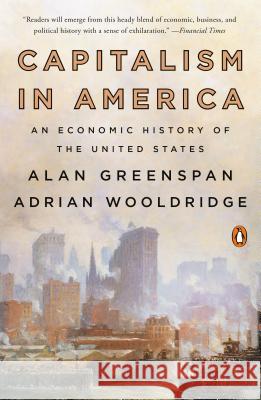Capitalism in America: An Economic History of the United States » książka
topmenu
Capitalism in America: An Economic History of the United States
ISBN-13: 9780735222465 / Angielski / Miękka / 2019 / 496 str.
Kategorie:
Kategorie BISAC:
Wydawca:
Penguin Books
Język:
Angielski
ISBN-13:
9780735222465
Rok wydania:
2019
Ilość stron:
496
Waga:
0.45 kg
Wymiary:
20.83 x 13.72 x 3.05
Oprawa:
Miękka
Wolumenów:
01
Dodatkowe informacje:
Bibliografia











